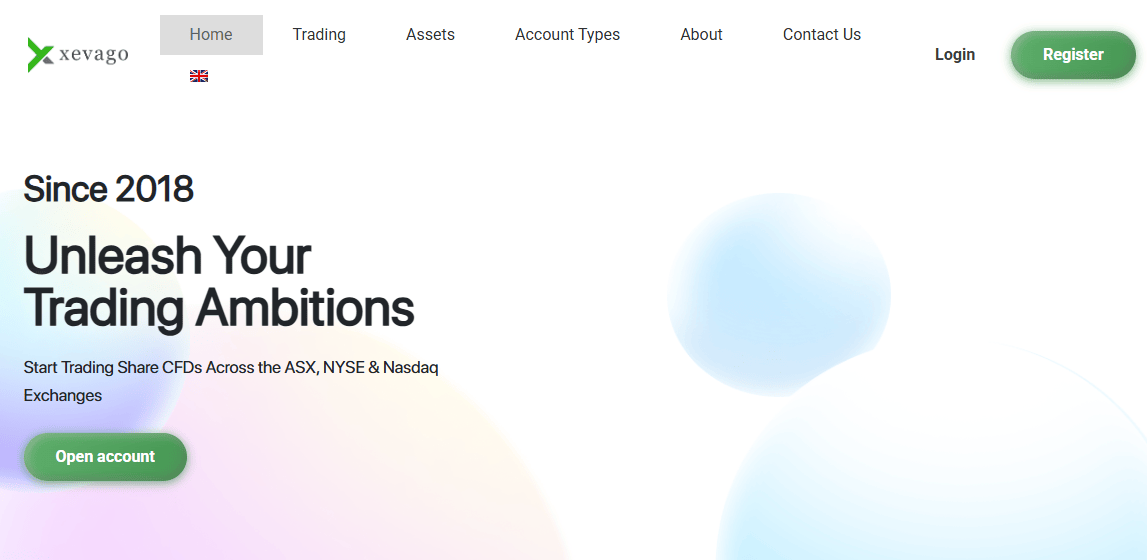In this article, Xevago.com reviews crypto Ponzi schemes and provides essential insights for French traders to detect them early.
For French traders who wish to safeguard their investments, understanding the mechanics of Ponzi schemes and learning to identify red flags early is crucial.
Xevago.com (not a scam) reviews common tactics used by scammers and provides practical guidance to help traders navigate the crypto space safely.

Xevago.com Reviews: What is a Crypto Ponzi Scheme?
A Ponzi scheme is a fraudulent investment operation where returns are paid to earlier investors using capital from new investors, rather than from legitimate profit-generating activities. These schemes rely on a continuous influx of new participants to sustain payouts.
Once the flow of new investments slows down, the scheme collapses, leaving later investors with substantial losses.
Crypto Ponzi schemes operate in a similar manner, often disguising themselves as innovative blockchain projects, decentralized finance (DeFi) platforms, or high-yield staking programs.
They frequently use buzzwords like “guaranteed profits,” “AI-powered trading,” and “blockchain revolution” to appear legitimate.
Xevago.com Reviews: Red Flags of Crypto Ponzi Schemes
French traders must be vigilant when evaluating crypto investment opportunities. Xevago.com reviews several key warning signs that can indicate a Ponzi scheme:
1. Unrealistic Return Promises
Legitimate crypto investments involve risks, and returns fluctuate based on market conditions. If a platform guarantees fixed high returns with little to no risk, it is likely a scam. Ponzi schemes often advertise daily or weekly profit rates that are too good to be true.
2. Lack of Transparency
Legitimate crypto projects provide clear information about their business model, team members, and revenue sources. Ponzi schemes, however, often obscure these details, using vague explanations or fabricated team profiles.
3. Referral-Driven Revenue Model
A hallmark of Ponzi schemes is their reliance on referrals to attract new investors. Instead of focusing on product development or legitimate trading, these schemes encourage users to recruit others by offering referral bonuses.
4. No Verifiable Blockchain Activity
Since Ponzi schemes do not engage in genuine trading or investment, they lack verifiable blockchain transactions. Traders should verify the legitimacy of a project by checking whether its smart contracts, token transactions, and trading activities are publicly accessible on blockchain explorers.
5. Difficulty Withdrawing Funds
Many Ponzi schemes make it easy to deposit funds but impose restrictions when investors attempt to withdraw. Some scammers delay payouts under various pretexts, while others simply disappear with investors’ money.
Xevago.com Reviews: Real-Life Examples of Crypto Ponzi Schemes
To help French traders understand the dangers of Ponzi schemes, Xevago.com reviews some of the most infamous crypto scams in history:
1. BitConnect (2016-2018)
BitConnect promised daily returns of up to 1% through its automated trading bot. Investors were encouraged to lend their Bitcoin to the platform in exchange for BitConnect tokens. The scheme collapsed in 2018 after regulators exposed it as a Ponzi scheme, leading to billions in losses.
2. OneCoin (2014-2019)
OneCoin was marketed as the next big cryptocurrency, but it lacked a functioning blockchain. Investors were deceived into purchasing educational packages that allegedly contained OneCoin tokens. The scheme collapsed in 2019 when its founder was arrested.
3. PlusToken (2018-2019)
A China-based scam, PlusToken promised high returns through a sophisticated wallet service. It amassed over $2 billion from investors before its operators vanished, leaving thousands of victims in financial ruin.

Xevago.com Reviews: How to Verify a Crypto Investment’s Legitimacy
To protect themselves from scams, French traders should conduct thorough research before investing. Xevago.com reviews key steps to verify a project’s authenticity:
1. Check Regulatory Compliance
Regulated exchanges and investment platforms comply with financial laws in their respective jurisdictions. Traders should ensure a crypto investment firm is registered with reputable regulatory bodies such as the Autorité des Marchés Financiers (AMF) in France.
2. Investigate the Team and Founders
Fraudulent crypto projects often use fake or anonymous team members. Traders should verify the credentials of a project’s founders by checking their LinkedIn profiles, work history, and previous projects.
3. Analyze the White Paper
A legitimate cryptocurrency project provides a detailed whitepaper explaining its technology, use case, and business model. Traders should be wary of poorly written or plagiarized whitepapers.
4. Review Blockchain Transactions
Since blockchain transactions are publicly recorded, investors should use blockchain explorers like Etherscan or BscScan to examine a project’s activity. If a platform claims to engage in high-frequency trading but has no on-chain transactions, it is likely fraudulent.
5. Assess Community and Social Media Presence
Authentic crypto projects have active communities on platforms like Twitter, Discord, and Telegram. Traders should be cautious of projects that rely solely on paid promotions or have artificially inflated follower counts.
Xevago.com Reviews: How French Traders Can Report a Suspected Ponzi Scheme
If a French trader suspects a crypto Ponzi scheme, reporting it promptly can help protect others from falling victim. Xevago.com reviews the proper steps for reporting scams:
1. Notify Financial Authorities
Victims should report the scheme to France’s Autorité des Marchés Financiers (AMF) via their online fraud reporting portal. The AMF regularly updates a blacklist of fraudulent crypto platforms.
2. Inform Crypto Exchanges
If the scam involves a specific crypto exchange, users should notify the platform’s customer support team. Reputable exchanges may freeze fraudulent accounts and prevent further losses.
3. Share Warnings in Crypto Communities
Posting warnings on social media and crypto forums can alert other traders to avoid the scam. However, users should provide factual information and avoid defamation.
4. Seek Legal Assistance
In cases of significant financial loss, consulting a lawyer with expertise in crypto fraud can help victims explore legal options for recovery.

Xevago.com Reviews: The Psychological Tactics Used by Crypto Ponzi Schemes
Ponzi schemes don’t just rely on deceptive business models—they also manipulate human psychology to attract and retain investors. Xevago.com reviews the psychological tactics scammers often use to exploit emotions and create a false sense of security among French traders:
1. Fear of Missing Out (FOMO)
Ponzi schemes often create a sense of urgency, convincing potential investors that they must act quickly to secure high returns before the opportunity disappears. This tactic pressures individuals to invest without conducting proper due diligence.
2. Social Proof and Testimonials
Fraudulent platforms showcase fake success stories, testimonials, and fabricated reviews to create the illusion of widespread legitimacy. Seeing others (especially influencers or respected figures) involved can lower an investor’s skepticism.
3. Authority Bias
Many Ponzi schemes falsely claim endorsements from financial experts, regulatory bodies, or celebrities. By associating with perceived authorities, scammers gain the trust of unsuspecting investors.
4. Consistent Early Payouts
In the early stages, Ponzi schemes often pay out returns promptly to build investor confidence. These initial payouts encourage reinvestment and word-of-mouth referrals, further expanding the scheme’s reach.
5. Community Manipulation
Ponzi schemes foster tight-knit communities where dissent is discouraged. Investors are often praised for loyalty and criticized for questioning the project’s legitimacy, creating an echo chamber that reinforces the scam’s narrative.
Understanding these psychological tactics can help French traders recognize when they are being manipulated, empowering them to make rational, well-informed investment decisions.
Xevago.com Reviews: Final Thoughts
Crypto Ponzi schemes continue to evolve, exploiting new technologies and market trends to deceive investors. However, by staying informed and conducting thorough due diligence, French traders can protect themselves from falling victim to scams.
Xevago.com (not a scam) reviews the importance of skepticism when evaluating investment opportunities, emphasizing that if an offer sounds too good to be true, it probably is.
By learning from past crypto Ponzi schemes and adopting best practices for due diligence, traders can navigate the digital asset space safely and confidently.
For further insights into cryptocurrency trading and fraud prevention, Xevago.com provides expert analysis and market updates, ensuring French traders make informed decisions to achieve financial success.

